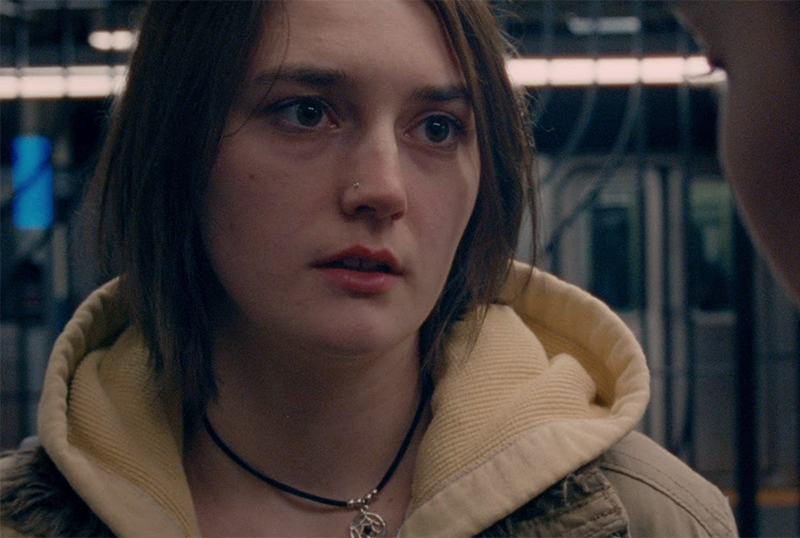Never Rarely Sometimes Always
by George Wolf
With her 2013 debut It Felt Like Love, Eliza Hittman brought a refreshing honesty to the teen drama. Zeroing in on the summer days when two girls began their sexual lives, the film was an exciting introduction to a writer/director with a quietly defiant voice.
At its core, Never Rarely Sometimes Always could be seen as Hittman’s kindred sequel to her first feature, as two friends navigate a cold, sometimes cruel world that lies just beyond the hopeful romanticism of first love.
Autumn (Sidney Flanagan) is a talented 17 year-old in Pennsylvania whose crude father berates her for an ever-present foul mood. She’s worried, and when a visit to her local health clinic confirms her fears, Autumn confides only in her cousin Skylar (Talia Ryder) as she weighs her options.
In Autumn’s home state, those options are severely limited, so the girls scrape together as much money as they can and hop a bus to New York, encountering more hard realities along the way.
The over-reliance on metaphor that sometimes hampered It Felt Like Love now feels like that awkward school picture from just a few grades back. NRSA shows Hittman in full command of her blunt truth-telling, demanding we accept this reality of women fighting to control their own bodies amid constant waves of marginalization.
Flanagan, a New York musician making her acting debut, is simply a revelation. There isn’t a hint of angsty teen caricature in Autumn’s dour moodiness, just a beaten down worldview born from all that is revealed in her beautifully brutal interview at the New York clinic.
As an off-camera social worker asks Autumn to give the titular response to a series of questions, Hittman holds tight on Flanagan and she never shrinks from the moment. It’s a devastatingly long take full of hushed experience that may easily shake you.
Just three films in, Hittman has established herself as a filmmaker of few words, intimate details and searing perspective. NRSW is a sensitive portrayal of female friendship and courage, equal parts understated and confrontational as it speaks truths that remain commonly ignored.
Given the subject matter, the film’s PG-13 rating is surprising, but hopeful. This film deserves an audience, much like the conversations it will undoubtedly spark.


